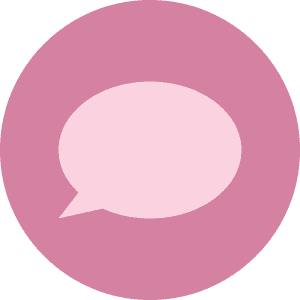Let’s Talk About Talking
 In a world of such immediate communication through smartphones and the Internet, it is important to recognize the importance of words and how they can be used both positively and negatively.
In a world of such immediate communication through smartphones and the Internet, it is important to recognize the importance of words and how they can be used both positively and negatively.
Certain phrases demonstrate powerful exclusion against one or more groups or classes based on sex, class, or ability. Phrases of sexual exclusion may include “boys and girls” or “ladies and gentlemen,” automatically assuming that everyone only adheres to one of these two particular genders. Phrases of class exclusion include “poor people” or “developing country.” These common phrases may shame or offend individuals who are part of a community that is wholeheartedly and uniquely theirs. Lastly, phrases that demonstrate ability exclusion include “disabled person” or calling someone “crazy.” Again, these words are hurtful and insensitive to certain groups.
Many times, I have been upset by people calling others “messed up” or “slow” with regard to their mental abilities. Some people are not aware that these words they are using are extremely exclusive and offensive. In an effort to learn how I could actively improve situations like this, I took a class that focused on using sports as a means to empower individuals with a variety of abilities. It did so through inclusion and respect for all. We had guest speakers come into the class to talk about their experiences playing sports and how it made them feel accepted and become a stronger person. I gained a lot from this experience and I learned that everyone is deserving of equal respect and should never be treated with such ableist language.
Recognizing microaggressions in everyday language is one key to preventing bullying. Take this situation for example: you overhear a conversation escalating and hear a teenager tell a 60-year-old man “okay boomer, go back to figuring out how to use that smartphone of yours.” Using disrespectful language like this towards someone who is from a different generation is a dangerous form of mockery and discourtesy. I find myself trying to be especially conscious of what I am saying when dealing with people of different age groups at school and at work, so I can help prevent hurtful things like “okay boomer” from being said.
We always want to try our best to include everyone and avoid saying things that can be misinterpreted as hurtful or exclusive. That being said, it is still okay to make mistakes. Sometimes we need to ask for a refresher every now and then on what phrases may be offensive to somebody. This is especially important when it comes to respecting gender identity, race identity, and class.
 It is important to remember that a conversation about language should be an educational conversation, not a shaming one. If you are in a situation where something hurtful is said, perhaps take some time to discuss the history of what was said and what the current climate around it is. You can also offer others some action steps to learn from, for example, by suggesting a YouTuber who creates great content on the subject. For a more systematic approach, you can also:
It is important to remember that a conversation about language should be an educational conversation, not a shaming one. If you are in a situation where something hurtful is said, perhaps take some time to discuss the history of what was said and what the current climate around it is. You can also offer others some action steps to learn from, for example, by suggesting a YouTuber who creates great content on the subject. For a more systematic approach, you can also:
-
- Explain why what was said wasn’t great.
- Explain why it matters.
- Try your best not to judge others for their mistakes.
- Also,
- Consider who is around.
- Consider your relationship with the person and implications of the conversation.
- Care about the person and the cause.
Has anyone used any microaggressions or exclusionary language around, or even to you? How did you react? Have you ever taken any steps to unlearn language that you used to use that you have since learned can be offensive?




Recent Comments